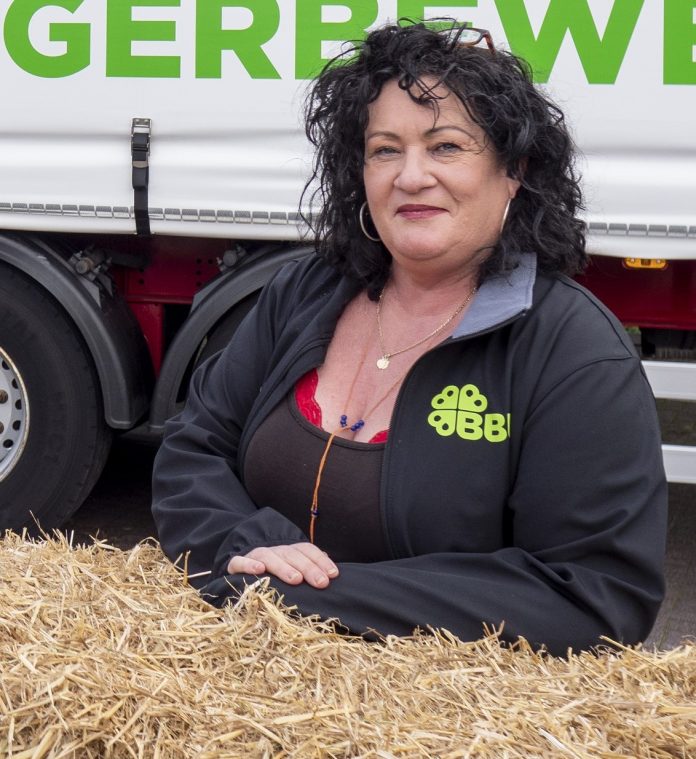
By Dutch Clingendael Institute scholars Professor Adriaan Schout and Paul Hofhuis, a former Dutch diplomat, responsible for environment policy.
Following the election victory of the Dutch farmers party, it has become clear how politically charged and how difficult to solve the nitrogen problem is, as regulatory requirements to reduce nitrogen emissions were at the heart of this victory which witnessed the newly formed party to become the biggest party in all twelve Dutch provinces.
Both in The Hague and in Brussels, policy makers are struggling to obtain more room to manoevre. However, solutions are not in sight. On Tuesday, EU Commissioner Frans Timmermans promised election winner Caroline van der Plas (picture), the leader of the farmers party, help from Brussels in the search for flexibility and towards policies whereby nitrogen reduction takes a less central place. Again, however, his message was that the Netherlands must comply with European nature conservation rules and that this is now up to Dutch policy makers.
EU climate chief talks nitrogen with Dutch agrarian party leader https://t.co/EpYjxDNfmP #TheCapitals
— EURACTIV Energy & Environment (@eaGreenEU) April 12, 2023
This helped to improve relations with the European Commission, but its central guidance remains: rules are rules. The Netherlands never got tired of repeating this mantra towards Southern Europe. However, EU nature legislation isn’t all that clearcut for member states.
The picture is clear. The Dutch cabinet is struggling with the European Commission and with itself. Big steps forward are needed and tinkering in the margin won’t be possible. The Hague must now come up with a coherent approach to Dutch nature and environment policy aimed at nature and sustainability of the agricultural sector. But can the Netherlands do this alone?
The deadlock between The Hague and Brussels could be broken if the Netherlands were to pull together with surrounding countries such as Belgium, Germany and Denmark.
Nitrogen and ammonia emissions are increasingly problematic there as well. EU nature rules from the 1990s is no longer suitable anymore to address the situation in EU member states in 2023. Moreover, 35% of nitrogen precipitation in the Netherlands comes from across the border, while part of the Dutch emissions blow back to its neighbours. The Hague focuses too much on itself, and Brussels is overly focusing on The Hague.
European nature policy is less crystal clear than it seems. The situation in Germany differs from that in the Netherlands because in Germany, twenty years ago, Natura2000 areas have been determined in a different manner. Germany will not escape from follow-up steps and restrictive measures. Denmark, on the other hand, is to a degree further ahead than the Netherlands, as the Northern Belgian region of Flanders is struggling with the implementation of their recent nitrogen agreement as well. For that matter, Italy may well come into the focus as well, given how also the Po Valley is struggling with environmental problems.
Neighbouring countries can learn from learn from each other, work across borders and, where possible force changes to EU policy.
Why don’t we see Dutch Nitrogen Minister Van der Wal travelling to other European capitals, to cooperate more on this?
"The solution to the Dutch nitrogen crisis is to modify EU rules" – by @adriaanschout https://t.co/uBc6mKG18O
— BrusselsReport.EU (@brussels_report) October 10, 2022
Cooperation
To take the nitrogen problem to cross-European cooperation would not go down well everywhere. Those political parties in the Netherlands that are keen to simply press ahead will see this as delaying tactics. Also the governing Rutte IV coalition may prefer to spend €25 billion to buy out those that are considered to emit excessively, rather than to seek favours from Brussels once again.
The surrounding countries are following the developments in the Netherlands closely, knowing that it will be their turn to deal with such challenges at some point. To anticipate this and to seek cooperation could benefit both the Netherlands and the European nature.
To cooperate does not mean to abandon political solutions. It would mean acknowledging that a different approach in separate member states does not work well and that the Netherlands does not enjoy sufficient political weight on its own to alter EU policies.
NL🇳🇱 crisis –nitrogen❗️– shows sth about EU policy: Societal changes dont work with rules + governance by deadlines.
EU laws: fine for lawnmowers & cucumbers but not for competitiveness or reduction nitrogen.
Wider change demands steering via network processes & capacity building— adriaan schout (@adriaanschout) March 31, 2023
Originally published in Dutch by De Telegraaf.
Disclaimer: www.BrusselsReport.eu will under no circumstance be held legally responsible or liable for the content of any article appearing on the website, as only the author of an article is legally responsible for that, also in accordance with the terms of use.












